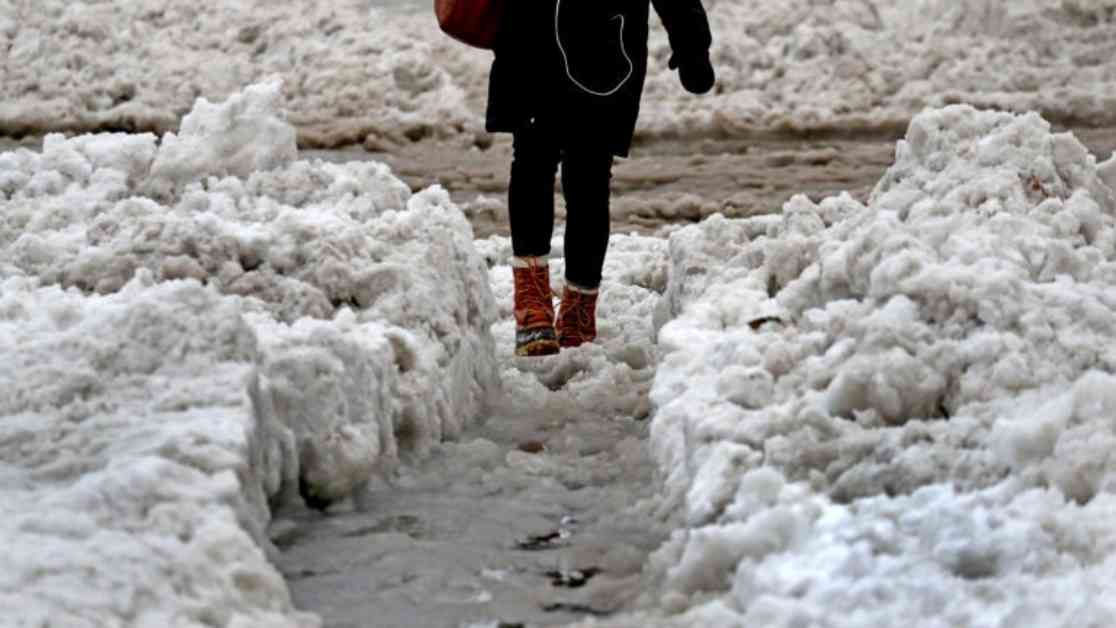Boston’s Neighboring Cities Crack Down on Uncleared Sidewalks
As winter storms and frigid temperatures grip the Boston area, residents are grappling with hazardous street conditions, leading city officials to ramp up enforcement efforts. Boston recently issued over 1,200 citations for uncleared sidewalks, sparking a call for collective responsibility from Mayor Michelle Wu. With a significant increase in snowfall this winter, icy streets pose a serious safety concern for pedestrians.
Regional Enforcement Efforts
The issue of uncleared sidewalks is not confined to Boston alone. Neighboring cities like Cambridge, Brookline, and Somerville are also facing similar challenges. Cambridge conducted 262 inspections and issued 105 violations in just a three-day span, reflecting the widespread nature of the problem. Brookline reported 1,134 complaints and issued 300 tickets, while Somerville handed out 894 tickets and received 1,552 complaints since November. These numbers underscore the urgency of addressing the issue across the region.
Officials in Brookline have implemented a strict snow removal bylaw, with fines ranging from $100 to $250 per day for non-compliance. This underscores the importance of prompt and thorough snow and ice removal to ensure public safety. Despite the enforcement efforts, property owners are facing challenges in keeping the sidewalks clear, leading to increased demand for ice melt in local supply stores.
Challenges and Solutions
The surge in demand for ice melt has put pressure on local supply stores, as residents scramble to secure supplies for clearing their sidewalks. While some areas have reported shortages, Boston has managed to maintain a steady supply of ice melt through its vendor, ensuring that winter storm operations continue without disruptions. This highlights the importance of proactive planning and coordination to address the challenges posed by inclement weather conditions.
Mayor Wu’s emphasis on collective responsibility resonates with residents and business owners, who play a crucial role in ensuring safe passage on sidewalks. As temperatures continue to fluctuate and storms hit the region, the need for prompt and thorough snow and ice removal becomes increasingly critical. By working together and staying vigilant, communities can navigate the winter season safely and mitigate the risks associated with slippery sidewalks.
In conclusion, the enforcement efforts in Boston and neighboring cities underscore the importance of proactive snow and ice removal to maintain safe street conditions. As residents and businesses face the challenges posed by winter weather, it is essential to prioritize public safety and adhere to local regulations regarding sidewalk maintenance. By staying informed, prepared, and collaborative, communities can weather the winter season with resilience and responsibility.






